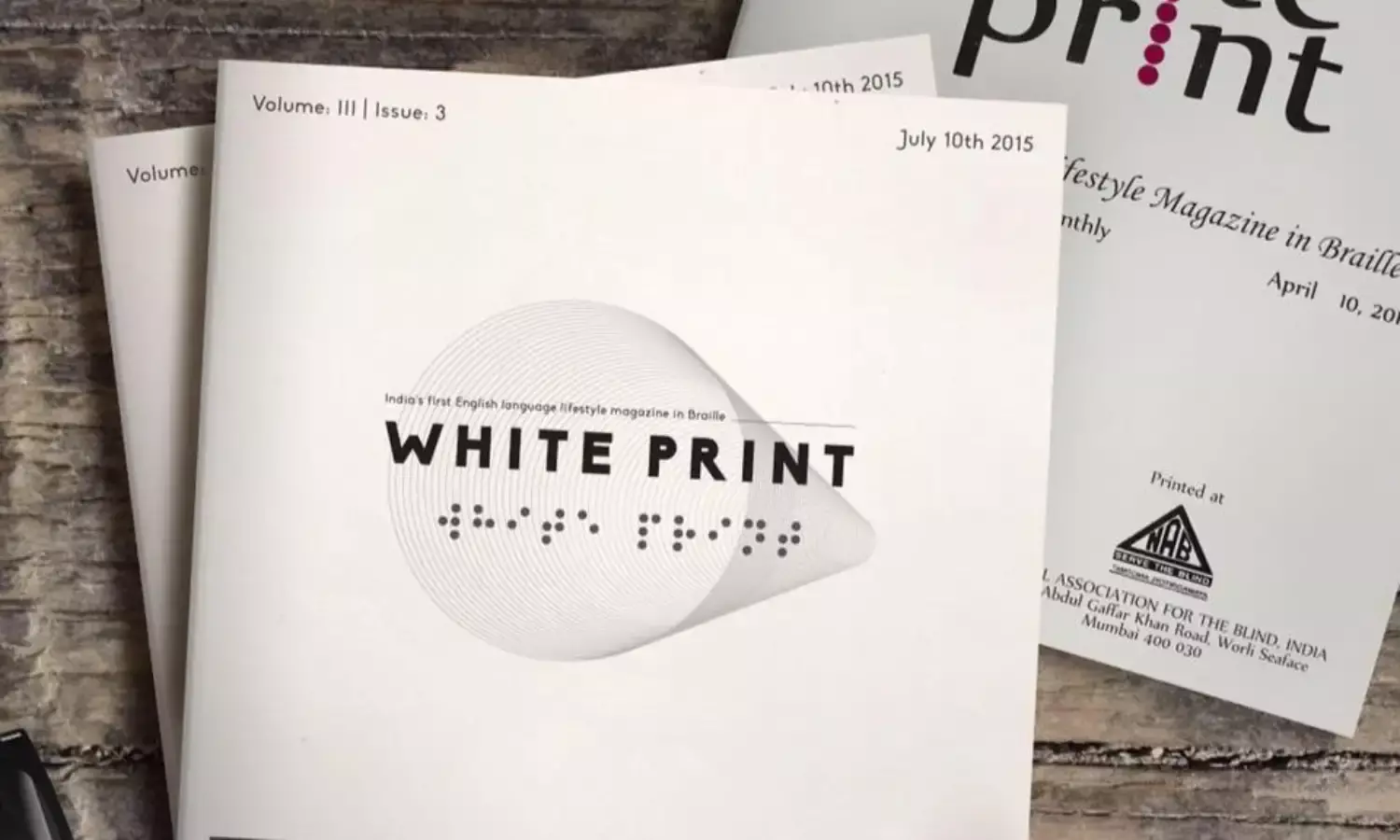Look Out, Look Within
White Print

There are lanes, small, narrow ones, that turn right, turn left – yet you find your way. And in those lanes are little houses – cramped, white, char, brown with cracks – within those houses are groups of people, solitary souls – tall, short, careful, careless anthropoids. And among those usual, ordinary lives are short stories, haikus, poetic gatherings, long tales and triptychs about love, woes and joy.
We are a galaxy of extraordinary people, trying to finish small tasks, long days, doing fearless things, and kind, beautiful things every day, yet we are all buried in a world trying to take away powers of love, kindness and compassion from us – hatred, hysteria, prejudice playing their disquieting roles.
And among the remarkable and the mundane we find hidden in buildings and piles of compassion – works of altruism – a feeling of being somewhere, with someone, and just fitting in perfectly in this messy world – like a path being cleared for a few, to make them find their terminus, their purpose. And when you find that space, you know you will be looked after, you will be loved. This is what we all need – solace, a peace place, a safe, warm dwelling, that we could call home.
Tirelessly brimming with ideas, compassion and a spirit to reach out to those who do not have access to the many aspects of life, literature, contemporary culture and society, Upasana Makati has created a quiet revolution through her magazine for the visually impaired.
It was in May 2013, that Upasana launched – White Print – India’s First Lifestyle Magazine in Braille for the visually impaired, which is printed at the National Association for the Blind in Mumbai and circulated across India. The 64-page monthly includes articles about sports, politics, culture, fashion, technology, inspiring stories of the common man, short stories and reader contributions.
The magazine aims to make available many well-researched articles along with leisure reads for those who cannot see. White Print was a fresh insight during a time when the visually impaired mostly depended on talkback software; their choices for literature and Braille literacy confined to the spaces of their mind.
White Print has been an innovation in its own kind, while promoting Braille Literature it has also effortlessly incorporated Braille Advertising within its fold. Through White Print’s advertising efforts, it became possible to reach out to a community of active decision makers, who made their own buying choices.
An interesting and noteworthy innovation was Coca Cola India’s musical advertisement that played their anthem “Umeedon waali dhoop, sunshine waali aasha” every time the reader opened the centre spread. This Ad was an effective initiator to bring in many other companies like Raymond, Tata Group, Vodafone, Aircel, Pidilite, Mahindra and Mahindra to join White Print’s avant-garde future.
Stories are carved out in edifices, brought together by people, for people, changing lives and creating an inclusive, united environment through a constant push for happiness, contentment and hope for all. Yet stories don’t stand in solitude, they are a constant effort of a few people, their ideas and the drive to bring a positive change in the world.
Through art, design and culture, Upasana Makati’s White Print is an ever-glowing example of devotion to the idea of a good life, the will to make everyone understand the understated power of a narrative to quietly but surely create avenues of joy, giving the visually impaired a lot to look forward, them becoming a part of this inclusive journey of books, words, sounds, language and culture.
Tactabet – one of its kind Braille Tactile alphabet book in English and Hindi, is an example of White Print’s ease in bringing to the fore constant creative outcomes. The alphabet books launched in December 2016 enable integrated and fun learning for visually impaired and kids with low vision.
Another noteworthy feat in Upasana’s journey has been the ability to create inclusiveness, through her recently published book – Look Out, Look Within which is a children’s illustrated storybook to promote inclusion in the minds of children.
Upasana Makati has been the recipient of many awards like the First Lady Award by the Ministry of Women & Child Development (Govt. of India), in 2018, made it to the Fortune India 40 Under 40 list, Microsoft Equal Opportunity Award for Innovation, to name a few.
And when those cracks, the ones on dwellings, homes and people, go unnoticed, you will see another world – the lanes will be broader, the stories richer, no one will stand apart from the other – we will look at each other beyond our oddities, beyond our challenges, our handicap, or normalness, our oddness, our crooked smiles, our pretty hands, a scarred face, a slant walk, a blurry sight, beyond the fat, the tall, the short, the mutter or a stutter – those cracks, or flaws, or enticing traits will carry no weight – mended by an uncluttered mind, an inclusive world, kind souls and notions.



